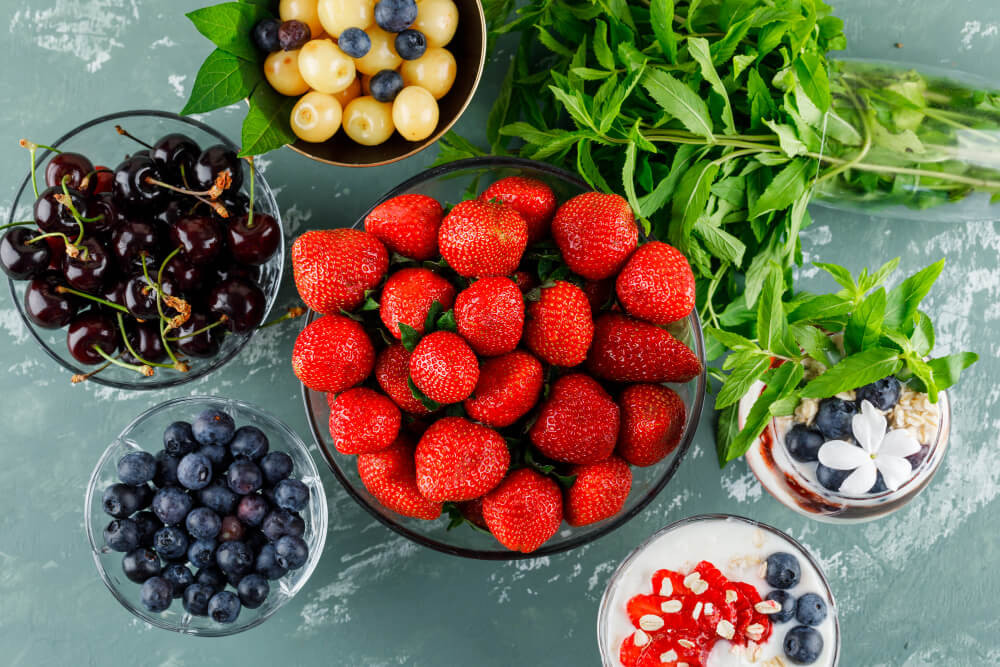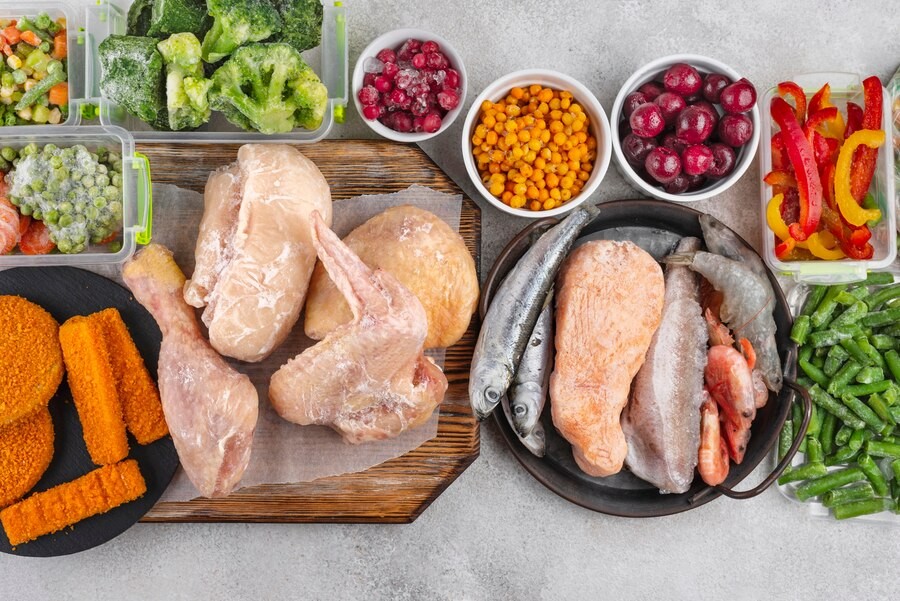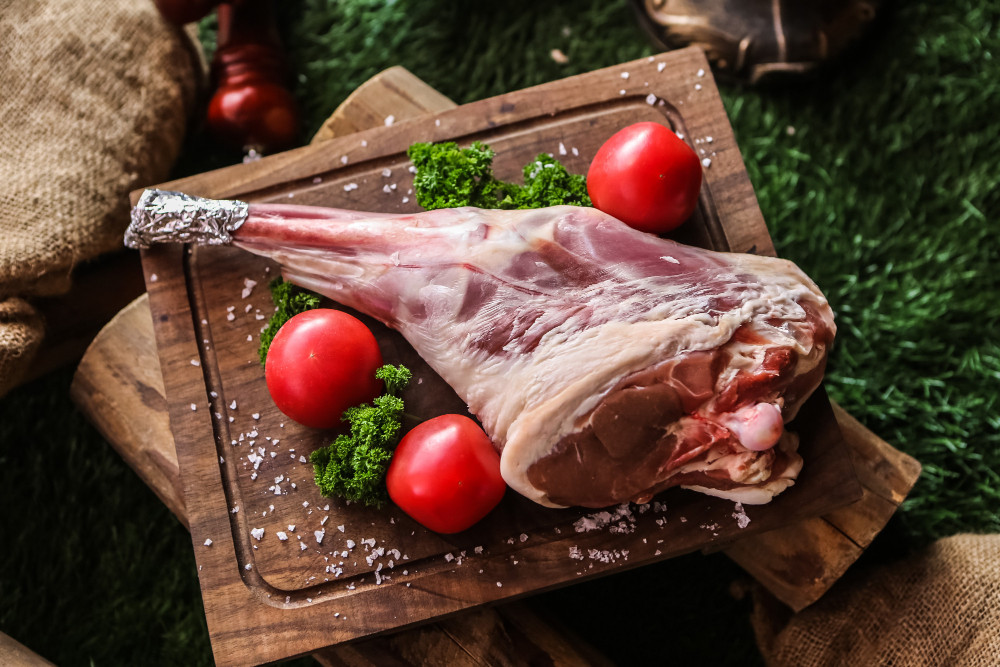Superfoods is a term often used to describe nutrient-dense foods that are believed to offer various health benefits due to their high concentrations of vitamins, minerals, antioxidants, and other valuable compounds.
When it comes to superfoods, think of a group of foods known for their high nutritional value and potential benefits to well-being. Read on to learn more about what sets these foods apart!
What is a Superfood?
Superfoods are a group of foods that are very nutritious and beneficial for overall health. There isn't a specific set of criteria defining a superfood. However, generally, foods that fall into this category are low in calories and high in beneficial nutrients like antioxidants, minerals, vitamins, fiber, flavonoids, and healthy fats.
Consuming superfoods can help maintain health by boosting the immune system and reducing the risk of chronic diseases. Each superfood provides unique nutritional benefits.
- Maintaining heart health
- Boosting the immune system
- Preventing cancer
- Reducing inflammation
- Lowering cholesterol
Read more: Nutrition Content And Wortel Benefits For Health
Superfood Options for a Healthier Diet
Some of the foods that are included in superfoods include:
Avocado
Avocados are an excellent source of nutrients, including fiber, vitamins, minerals, and healthy fats. They contain monounsaturated fats that are believed to have anti-inflammatory properties, which can help reduce inflammation in the body. Eating avocados regularly can lower the risk of heart disease, diabetes, metabolic syndrome, and certain types of cancer.
Sweet Potato
Sweet potato is a root vegetable packed with potassium, fiber, and vitamins A and C. It is also a rich source of carotenoid antioxidants that may help reduce the risk of certain types of cancer. Despite its sweet taste, sweet potatoes do not cause blood sugar spikes. Instead, they are considered beneficial for people with type 2 diabetes as they can help improve blood sugar control.
Read more: Often Thought To Be The Same, This Is The Difference Between Nutritionists And Detections
Berries
Berries are a great source of flavonoids, powerful antioxidants that can help lower the risk of heart attack, particularly in women. Several types of berries are considered superfoods, such as acai berries, blueberries, cranberries, goji berries, raspberries, strawberries, blackberries, and tart cherries. You can enjoy berries in many ways, such as in smoothies, puddings, or as a topping for oatmeal. Alternatively, you can simply eat them fresh and raw.
Dark green leafy vegetables
Dark green leafy vegetables are an amazing source of essential nutrients such as folate, zinc, calcium, iron, magnesium, vitamin C, and dietary fiber. These vegetables are known to have the potential to lower the risk of chronic diseases, including heart disease and type 2 diabetes. Moreover, they contain high levels of anti-inflammatory compounds called carotenoids, which may prevent certain types of cancer.
Some examples of dark green leafy vegetables are cabbage, mustard greens, turnip greens, and spinach. These vegetables can taste slightly bitter, but you can balance the flavors by cooking them in soups or stir-fries.
Nuts and seeds
Nuts and seeds are considered superfoods due to their high fiber content, plant-based protein, and heart-healthy fats. These food groups are also rich in anti-inflammatory compounds and antioxidants that help protect against oxidative stress. Research has shown that incorporating nuts and seeds into your diet can be beneficial in preventing heart disease. Some good nuts and seeds include almonds, pecans, pistachios, walnuts, cashews, Brazil nuts, macadamia nuts, and peanuts. For seeds, you can consume sunflower seeds, pumpkin seeds, chia seeds, and flax seeds.
Superfoods are foods that are rich in nutrients and easily available in traditional markets and supermarkets. These foods can be processed into smoothies or used as ingredients in delicious meals. If you have any questions or concerns about nutrition, you can consult our doctor or utilize the consultation feature on the Ai Care application.
Want to know more information about nutrition, food, and other diet tips? Click here!
- dr. Yuliana Inosensia
Hill, A. (2018). 16 Superfoods That Are Worthy of the Title. [online] Healthline. Available at: https://www.healthline.com/nutrition/true-superfoods.
Brooks, A. (2020). Photo Gallery: 13 Best Superfoods. [online] EverydayHealth.com. Available at: https://www.everydayhealth.com/photogallery/superfoods.aspx.
Cleveland Clinic (2021). What is a superfood, anyway? [online] Cleveland Clinic. Available at: https://health.clevelandclinic.org/what-is-a-superfood/.
Ware, M. (2019). Superfoods: Health benefits, uses, and risks. [online] www.medicalnewstoday.com. Available at: https://www.medicalnewstoday.com/articles/303079
Ware, M. (2019). What are superfoods and why should you eat them?. Available from: https://www.medicalnewstoday.com/articles/303079












